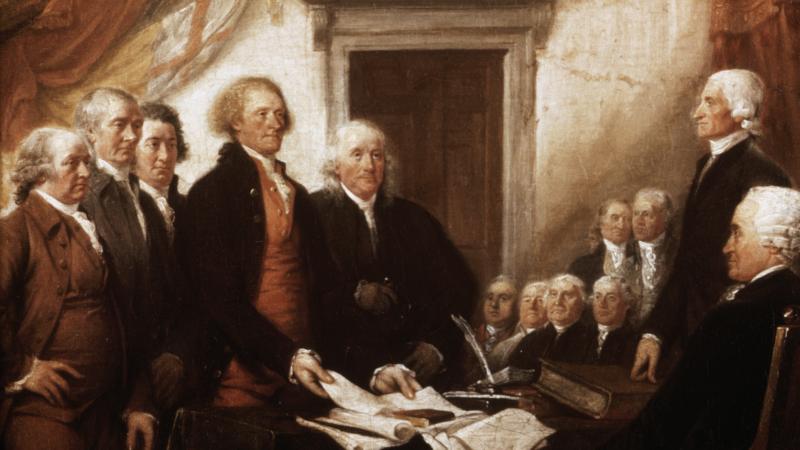LA Sen. Cassidy wants Treasury to crack down against foreign shrimp imports flooding US market
With domestic shrimpers facing record-low prices and increasing competition, the fight for transparency and fair trade policies is heating up.
(The Center Square) — U.S. Sen. Bill Cassidy is calling on the Department of the Treasury to crack down on international financing that he says is actively harming the domestic shrimp industry.
In a letter to Treasury Secretary Scott Bessent, Cassidy warned that U.S. taxpayer dollars are indirectly funding foreign shrimp aquaculture expansion, putting American shrimpers at a severe disadvantage.
Cassidy's letter, dated Feb. 20, outlines the stark financial struggles of U.S. shrimpers.
In 2021, domestic shrimpers landed 227 million pounds of shrimp worth $522 million, but by 2023, despite landing nearly the same volume — 211 million pounds — the value of their catch had plummeted to just $269 million.
According to Cassidy, the price per pound dropped from $2.30 to $1.27, a devastating blow for shrimping communities dependent on stable prices to stay afloat.
The senator points to a major cause: An influx of foreign shrimp flooding the U.S. market. In 2021, imported shrimp reached a record 1.8 billion pounds, and by 2023, Ecuador alone had nearly doubled its exports to the U.S., climbing from 178 million pounds in 2019 to 443 million pounds.
This surge has left domestic shrimpers struggling to compete, docking vessels because they cannot afford rising operating costs.
What makes the issue particularly frustrating for Cassidy is that U.S. taxpayer dollars are, in part, funding this competition. He highlighted how international financial institutions, which receive billions in funding from Congress, have invested heavily in Ecuadorian shrimp farms.
The Inter-American Development Bank Invest has pumped over $100 million into Ecuador's shrimp sector, while the International Finance Corporation has invested another $93 million since 2015.
"These funds have directly contributed to the growth of Ecuador's shrimp industry, which has seen its exports to the U.S. increase dramatically," Cassidy wrote. "This is a direct contradiction to the spirit and letter of U.S. law."
Cassidy is demanding that the Treasury Department take action to prevent further IFI-backed financing of shrimp aquaculture projects that undermine American industries.
He has asked for a full accounting of all U.S.-supported projects over the past decade that contributed to foreign shrimp expansion and wants assurance that future funding will not support competitors to the domestic shrimp industry.
Cassidy's concerns come amid growing evidence of misrepresentation in the U.S. seafood industry.
A recent investigation in Savannah, Georgia, found that 77% of the shrimp advertised as "local" in restaurants were actually imported. The study, conducted by SEAD Consulting on behalf of the Southern Shrimp Alliance, used genetic testing to analyze shrimp origins and exposed widespread deception.
Similar findings emerged in Florida, Louisiana, Mississippi and Alabama. One investigation by SeaD in Tampa and St. Petersburg revealed that only two out of 44 sampled restaurants were serving authentic, wild-caught Gulf shrimp. The fraud rate — 96% — fueled outrage among Gulf Coast shrimpers who say they are being squeezed out of the market by mislabeled foreign imports.
"If restaurants wish to serve shrimp from countries associated with labor abuses, environmental harms, and banned antibiotics, that is their choice," said John Williams, executive director of the Southern Shrimp Alliance. "But be honest and let consumers decide."
In response to the crisis, Georgia lawmakers have introduced House Bill 117, which would require restaurants to disclose when they serve imported shrimp. "Consumers have a right to know what they are eating and feeding their families," said State Rep. Jesse Petrea, the bill's sponsor.
Other shrimping states are moving in the same direction. Louisiana recently passed Act 372, mandating clear labeling for imported shrimp and crawfish. Enforcement of seafood mislabeling laws, however, remains inconsistent at the federal level, leaving gaps that can harm domestic shrimpers.
As the pressure mounts, Cassidy is pushing for the Treasury Department to take a stronger stance.
"This must no longer be tolerated," he wrote. "We need to ensure that American industries, not foreign competitors, benefit from U.S. taxpayer dollars."
With domestic shrimpers facing record-low prices and increasing competition, the fight for transparency and fair trade policies is heating up. Cassidy's letter signals that Gulf Coast lawmakers are prepared to escalate the battle to protect one of the region's most vital industries.















